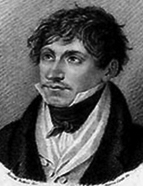

Bertolotti’s ethnographic analysis of the Kingdom of Portugal is also interesting to read (but there is a sense of strangeness that can only be felt by the contemporary reader). He makes use of the narratives of the Piedmontese scholar Giuseppe Barretti (A journey from London to Genoa, through England, Portugal, Spain and France, 1770), who revealed his deep aversion to the Portuguese lower classes and to Lusitanian society in general, which he considered to be backward. What also stands out are his descriptions relating to the presence on Portuguese soil of (large numbers of) “negroes”, true “monsters”, who form a contrast with the ordinary beauty of white Portuguese people, and who multiply their “despicable” presence through miscegenation, the cause of the bastardization and degeneration of the white race and of Portuguese families. (In his opinion, inter-racial unions made the Portuguese deviate from the European race.) (t. III, p. 115-116).
Bertolotti only takes his narrative up to 1811, the date when the French left Portugal. What is noticeable is that, contrary to what Alphonse Rabbe, for example, does in his work Resume de l’Histoire de Portugal, depuis les premiers temps de la monarquie jusqu’en 1823 (and Adriano Balbi, an enthusiastic supporter of vintismo), Bertolotti refuses to analyze the vintista period. In a marginal note to Chapter XVII in the third volume, almost entirely inspired by Durdent’s work, Bertolotti makes a depreciative remark about the pro-Napoleonic narrative of this French writer, criticizing this type of commentary. He also warns that it is his choice not to continue to write another part “più uniforme alla verità e più concorde al nostro sentire” (t. III, p. 101) because he considers it to be a “prudenza lodevole” not to offer opinions about contemporary events. This position of Bertolotti’s thus justifies the fact that he does not analyze the period that marks the apogee of the liberal revolution (whereas in the work of an author like Rabbe, the apologetic view of this period takes up a whole chapter with numerous references to Balbi’s reflections). However, Bertolotti’s position of political non-alignment was considered to be more opportunistic (a failing he was accused of several times) than conceptual as his attitude over the years would seem to confirm. In fact, he never showed any form of active political intervention. It is understandable therefore why he might not have hesitated to break off his friendship and unity with other writers and companions.
